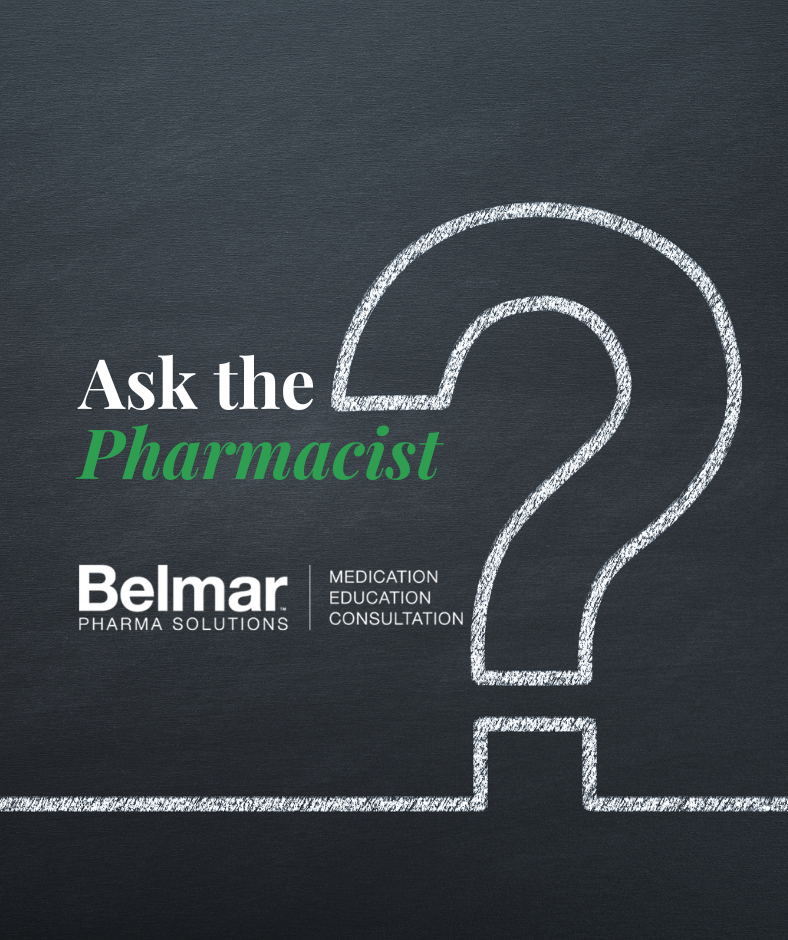Until recently, misleading data from the original Women’s Health Initiative (WHI) hormone study clouded the view of menopause and hormone replacement therapies. Quite frankly, the study frightened a generation of women away from getting the help they needed as they got older.
For the past two decades, medical professionals analyzed data, conducted additional studies, and published a new review in the Journal of the American Medical Association (JAMA). Today, with help from the medical community, women everywhere are changing their perspective about the many benefits of hormone replacement therapies.
Belmar Pharmacist, Rachel Noonan, breaks down the JAMA study to help you better understand the latest research about hormone replacement therapies and menopause.
Q: There’s a lot of information in this article. Can you explain the main point?
A: The biggest takeaway from this review is that 20 years of data has shifted the clinical perspective of hormone therapy. In this study, JAMA points out the benefits of hormone replacement therapy (HRT) for women under 60. This is a huge step toward recognizing the value HRT can have for women struggling with symptoms related to perimenopause and menopause.
Q: What’s changed in the last two decades since the original Women’s Health Initiative (WHI) study?
A: A lot! Time has been the major player here – the chronic diseases flagged by the original WHI studies are now known to be far less likely in younger populations. Two decades of research gave the medical community the time it needed to fully evaluate presumed risks. Based on the data, it seems that HRT associated risks are far less worrisome than originally thought.
Q: Has the perception of menopause changed, too?
A: Yes! Menopause awareness has definitely shifted. Women are speaking up about the challenges of facing perimenopause without medical support. After years of suffering in silence, menopausal women are finding their voice. Topics that have been historically perceived as taboo are front and center in the media. Quality of life matters, and this study reflects that.
Q: Less risk sounds promising. What about effectiveness? Are medical professionals still skeptical about the benefits?
A: I would like to think skepticism has been replaced with renewed interest. The study clears up confusion about the efficacy of HRT, which is refreshing for the functional medicine community.
In the review, authors point out that “hormone therapy was established as an effective treatment for menopausal symptoms,” and admit that the study had never intended to call efficacy into question. We know a lot more about hormone therapy in general, especially the differences between synthetic and bioidentical hormones, which were somewhat confounded in the original study. Bioidentical hormones mimic the hormones naturally found in your body, versus synthetic hormones, which are chemically modified. Both have their place in therapy, but the original study did not investigate bioidentical hormones.
Q: What does this mean for me?
A: Working with a compounding pharmacy to get a personalized fit of bioidentical hormones, especially if you’re under the age of 60, could provide relief that you shouldn’t fear. So, if you are experiencing hot flashes, night sweats, or other troublesome issues, HRT is an appropriate and beneficial option.
Q: What if my provider dismisses me or still doesn’t feel comfortable prescribing hormone therapies?
A: Here’s the study we’re referring to to share with your doctor. We offer clinical consultations for providers; we love to expand our community! If you’re having trouble getting the help you need, Belmar Pharmacy’s referral program can support you. Call the pharmacy, speak to our staff, and find an informed provider in your area.


